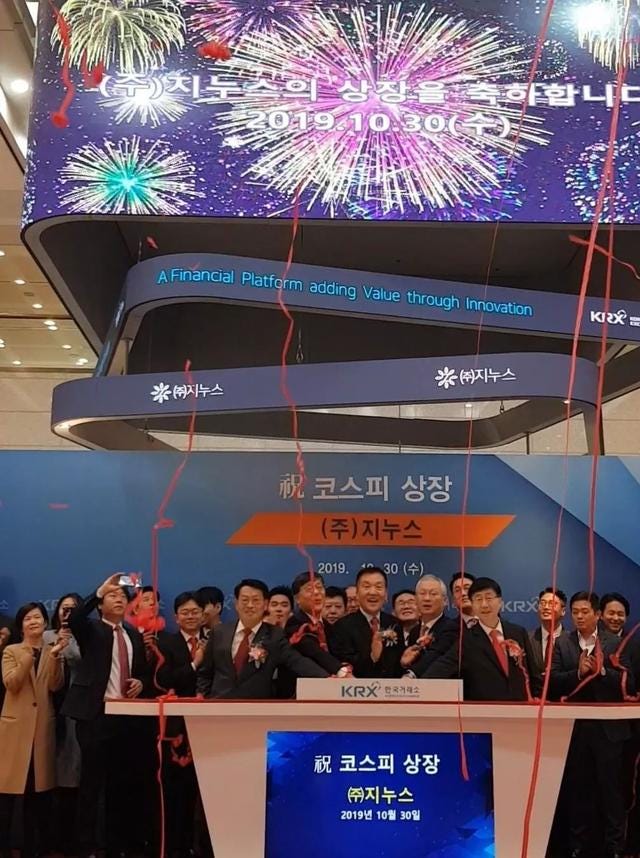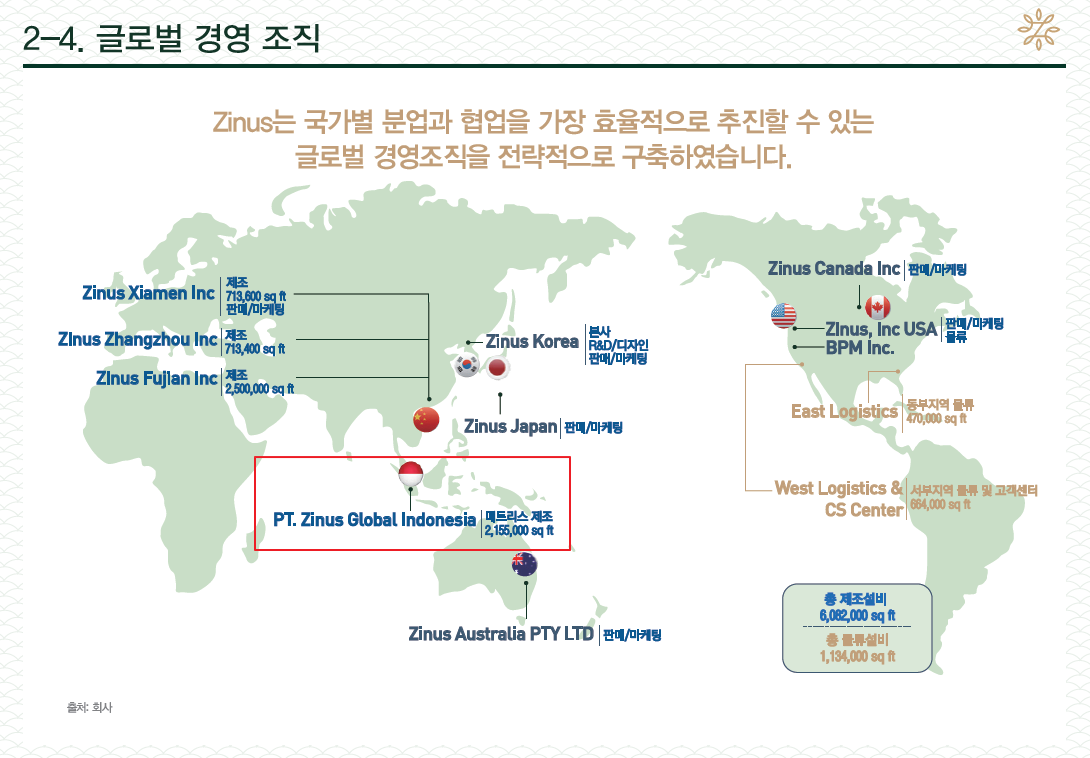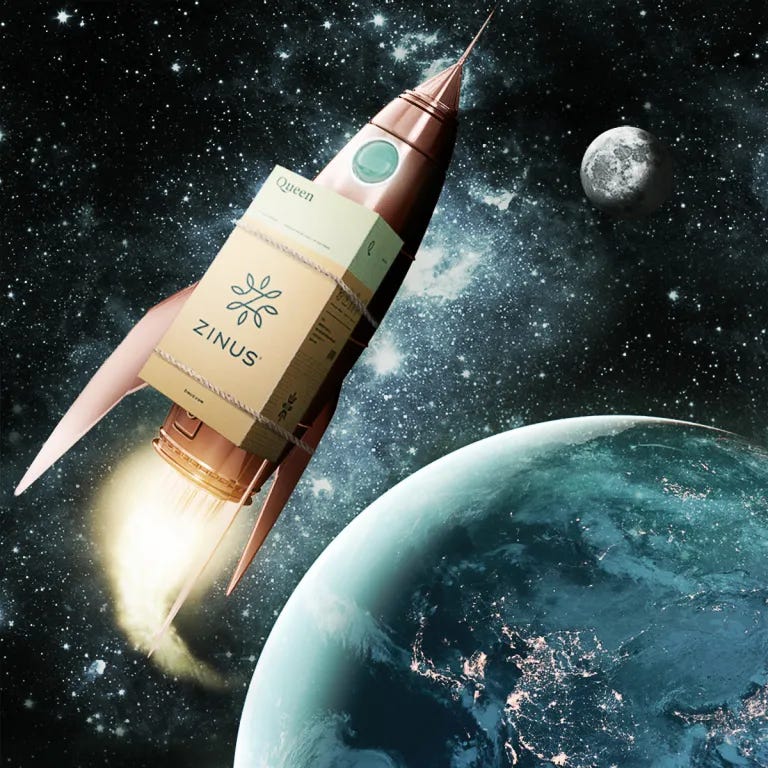Disrupting the Disruptors
Story of the $250 green tea mattress. The greatest economic arbitrage in the mattress industry you probably haven't heard of.
While building Tuft & Needle, our most formidable competitor was not the likes of Casper or Purple, but rather an obscure Korean mattress company that executed near-flawlessly on Amazon. Within five years, Zinus (a portmanteau of “zzz’s in us”) ramped annual sales — just on Amazon — to over $250 million and took the mattress business from zero to IPO.
Try searching for any mattress-related keyword on Amazon, and you will likely find Zinus occupying not just one but many of the top rankings. During its growth stage, the company launched a new SKU almost every day. Hard to believe, but Zinus now boasts a massive online catalog of over 1,500 SKUs.
While the other DTC mattress startups were squabbling over Google ads and courting Instagram influencers, this sleeper company came out of nowhere and went all in on Amazon. The timing could not have been more fortuitous.
From its humble beginnings as a brick & mortar OEM mattress manufacturer (e.g. Walmart’s “Spa Sensations”), Zinus saw the online mattress space starting to heat up in 2014, as the next biggest thing in e-commerce. VCs were scrambling to pump billions into the next cohort of “DNVB” disruptors. Amazon itself was doubling down on the Furniture category, to encourage consumers to buy big & bulky items as part of the broader shopping experience. What’s more, at the time, the China-to-US supply chain was humming along at peak performance.
For the very first Prime Day 2016, in a seminal moment for the mattress industry, the Zinus Green Tea Mattress made its explosive debut. College students and young millennials bought Zinus in droves — a brand-new mattress for less than the price of a textbook.

Zinus continued feeding off its own success and, by 2018, on its own, represented over half of the mattress sales on Amazon.

Zinus successfully IPO’d in Korea in 2019.
Then just this past year, in 2022, Zinus was acquired by Hyundai’s Department Store Group for an astonishing $730 million. (Unbeknownst to many in the US, the Hyundai conglomerate operates 55 subsidiaries in sectors as diverse as construction, logistics, finance, steel works, and insurance.)
“A God-Tier Arbitrage”
“We strategically established a global management organization that can utilize the division of labor by country most efficiently.”
Very few brands — even looking beyond the mattress category — have played the game of Amazon to this level of cunning and sophistication. Prior to Zinus, the company’s founder earned the moniker “TentPole Lee” in the 90s because he masterfully exploited international trade and scaled his camping tent business, Jinwoong (dba “Northpole”), to $300 million in sales and a third of the global market share.
There are two secrets to NorthPole's success: its laserlike focus on the mass merchandiser and its ability to harness China's manufacturing prowess.
In the old days, NorthPole sold to dozens of importers and wholesalers of camping equipment, sporting goods and luggage in the U.S., who slapped their own brand or that of their customers on NorthPole's products. Now the company cuts out the middlemen and sells directly to a handful of mass retailers mostly under their private labels, passing on much of the savings to consumers. "Follow the discount retailer," is how Sun describes the strategy. The mass merchandisers' private labels are winning market share from such brands as Coleman and Samsonite, the big casual luggage maker.
NorthPole develops and designs new products each year to be sold under exclusive store brands or the private labels of its mass-merchandising customers. For example, Wal-Mart's Rome line of luggage is actually owned and produced by NorthPole. Quest and Versalite tents, sold in wholesale clubs, are also NorthPole labels.
Selling direct to the retailer brings NorthPole closer to the consumer. In fact, such stores as Wal-Mart are in effect asking NorthPole to manage the store shelves its products appear on. The supplier suggests packaging, pricing, store displays and new products. Once NorthPole burrows its way into a retailer, it extends its camping shelf space from tents by adding sleeping bags, air mattresses and backpacks. Then it increases its floor space by moving on to the lawn and garden and luggage shelves at the same retailer.
The Chinese production platform enables NorthPole to ramp up output quickly and churn out high-quality merchandise at low prices. Lee built his first factory in Xiamen, Fujian province, in 1988.
Zinus repeated the same playbook — this time with Amazon as a boon:
Directly operated its own plants in China to manufacture roll-packed mattresses cheaper than any US competitor and to secure government subsidies.
Emptied out countless shipping containers into Amazon’s fulfillment centers to sell mattresses below cost to American consumers with incredible inventory turnover.
Collaborated with Amazon to prime the platform’s own retail growth narrative. As an incentive to help grow the Furniture category, Amazon heavily subsidized “marketing co-op fees”, which are typically charged at rates north of 10% (an effect similar to VC-subsidized customer acquisition costs).
Unloaded $200 million of shares onto Korean retail investors through an IPO with a “#1 mattress brand in the US” story. Over 97% of company revenues were from exports to the US. To American consumers, Zinus was a cheap made-in-China mattress; but to Korean investors, Zinus positioned itself as a premium and innovative brand — a nice boost to the valuation multiple.
“Golden Goose” Amazon Playbook
Zinus discovered its virtuous cycle for unstoppable growth on Amazon:
Globalize procurement in countries with low cost and high productivity to manufacture "just good enough” quality products.
Overwhelm Amazon with speed-to-market, and saturate the catalog with every imaginable variation of mattresses at unheard-of low prices. Also develop and supply all the high-value accessory products to secure the programmatic upsell in the “Frequently Bought Together” recommendations.
Drop prices even lower during Amazon promotional events, e.g. Prime Day, Black Friday, and the frequent “lightning deals”. Aggressively squeeze out competitors from zero-sum promo slots. Treat any losses as customer acquisition costs. Gain the benefits of volume for the backend supply chain.
Spike 4+ star reviews through the special promotions above. As an industry rule of thumb, consumer expectations for mattress quality & longevity are greatly reduced for purchase prices below $500, compared to above $800. The consumers’ perceived value based on the low prices will be predictably favorable.
Amazon’s search algorithm loves the velocity of sales and reviews, and this prioritizes featured placements for product listings. Reap the rewards of organic sales afterward.
Future of Zinus
In the long run, though, the harsh reality is that Zinus is a made-for-Amazon brand. Zinus also does phenomenal numbers with Walmart and Wayfair. But in the same way as Amazon, these retailer partnerships do not require much heavy lifting by the brand. To date, Zinus’ astounding review counts have mattered far more than its brand in the consumer’s buying decision. Or, you may go as far as to say, Zinus’ reviews are the brand.
At this point, American consumers have come to associate Zinus with a cheap Amazon mattress. Ironically, this is a similar problem faced by Hyundai Motors, which has taken decades and billions in advertising dollars to try to dig itself out of that hole, until it finally threw up its hands and spun up a separate luxury brand, Genesis. That may be the path required for Zinus as well.
Despite Zinus’ claims of being fully vertically integrated, in practice, it is an Amazon mattress that happens to have its own website. Rather than being DTC-first, Zinus is kind of a reincarnation of a legacy mattress manufacturer that is optimized for filling the digitized floor slots of these e-commerce retailers. See Zinus’ sales channel mix:
Zinus is trying hard to wiggle itself out of the identity trap as a “pseudo-brand”.
These “pseudo-brands,” as some Amazon sellers call them, represent a large and growing portion of the company’s business. These thousands of new product lines, launched onto Amazon by third party sellers with minimal conventional marketing, stocking the site with disparate categories of goods, many evaporating as quickly as they appeared, are challenging what it means to be a brand.
“I think the name of the brand has become less and less important,” said CJ Rosenbaum, an intellectual property lawyer who estimates that between 10 and 15 percent of his clients are seeking basic registrations for cross-border e-commerce brands.
Mr. Wang added that “marketing is probably more important” than the names themselves. That’s marketing in the Amazon sense: Amazon ads, Amazon reviews, Amazon search. Lately, he’s seen an uptick in attempts to copy brands that are popular only on Amazon.
In late 2017, recognizing that it was overly dependent on these mass retailers — often quick to act on its own whims, selfish, and disloyal — Zinus rebranded and re-launched zinus.com.
Although the design and copy have been cleaned up over the years, Zinus’ brand voice and visuals are out of touch with the American consumer. The disconnect stems from Zinus employing design and marketing talent out of Korea, where the company is headquartered. The US org structure is optimized toward warehouse operations and channel sales, reflecting the operating model for the arbitrage described above.
Now, with the recent acquisition by Hyundai, Zinus’ focus is diverted from winning on Amazon to international growth and expansion. This also includes gaining a foothold in the Zinus home market of South Korea and taking advantage of the distribution within Hyundai’s own department stores (see “The Hyundai” mall and Livart).
That kind of greenfield opportunity was the IPO narrative, at least. But this will likely be a detrimental distraction to what has led to Zinus’ success to date.









Tentpole Lee... the under-the-radar winner of the Mattress Wars. I remember him visiting our HQ and asking questions about the $10k Le Marocco espresso machine...those were the days..